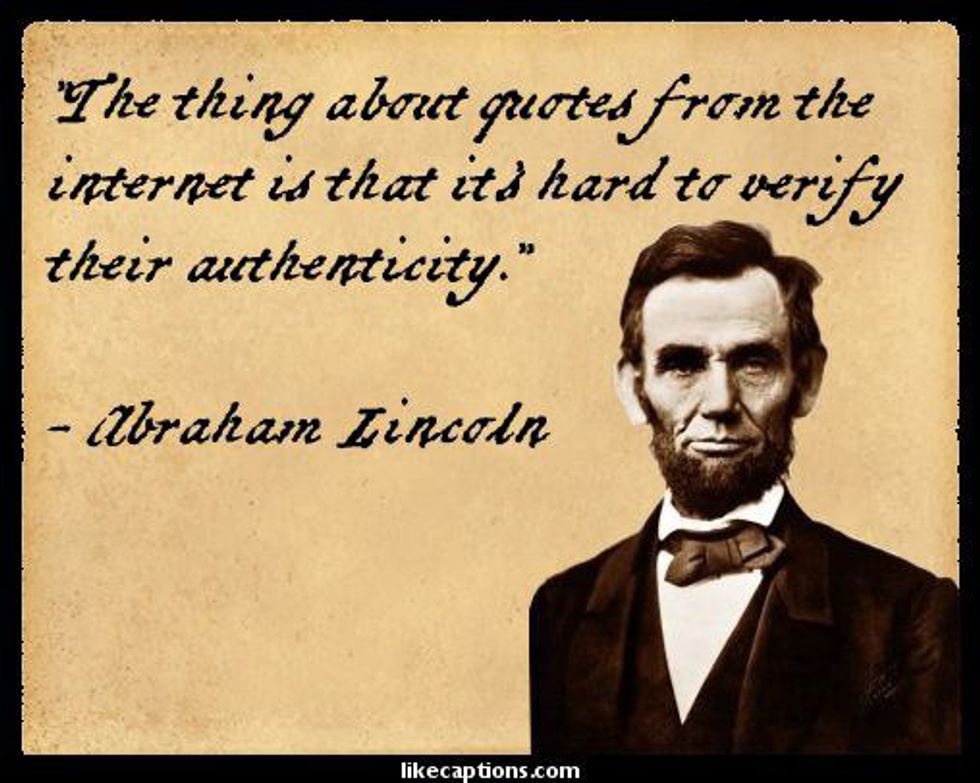Surely you didn't actually believe the headline, right? While it's somewhat plausible, you're smarter than that, aren't you? Sadly, it appears most of America isn't.
On my drive home from the library today, I was listening to the NPR program On the Media, which analyzes the American media. Today's topic of conversation was the notion that Facebook somehow affected the outcome of the election. While previous studies suggested the social media website could, in fact, influence the number of voters due to its "I voted" button and its voter registration campaign, this theory seems to have taken a more ridiculous turn.
Basically, the theory blames Facebook (and social media in general) for President-Elect Trump's victory on November 8. Why is Facebook to blame, you ask? Well, it appears a massive number of fake news articles received much more "interaction" on the website in the weeks leading up to the election, and of those "news" articles, very few shed a positive light on Hillary Rodham Clinton. Articles with titles like "Wikileaks Prove HRC Gave Guns to ISIS" seem to have had been shared, commented on, and read more than credible news articles. Thus, Facebook is receiving massive backlash for "enabling the viral spread of these fake news articles."
WHAT?!
SERIOUSLY. WHAT THE HELL?
I don't know what is more disappointing:
1. The fact that America elected a racist, sexist, bigot as president in the first place;
2. The fact that the American public is blaming a social media site for his win; or
3. The fact that a social media site might actually have the power to do such a thing because the American public is composed of so many people who do not understand the importance of President Abraham Lincoln's famous words:
I wonder how many people read over that without even thinking about how nonsensical that meme is.
Seriously, people, I totally understand the American education system is kind of lacking, but no one EVER taught you the importance of fact checking?! If you see a ridiculous headline, it's probably click-bait. If your interest is piqued anyways, go ahead and click the link and read the article. However, be critical of what you believe simply because the website looks credible. Always, ALWAYS double check information with more than one source, preferably a credible news outlet. How many people have seen friends (because certainly you wouldn't do something like this) post angry comments on a shared article published by The Onion, a satirical news site? I see it all the time!
How about we stop blaming social media (and the media in general) and start trying to educate the general population on the importance of credibility and general skepticism when acquiring news?
If you just can't help yourself, and you are one of those people who tend to be believers in fake news articles, Melissa Zimdars, assistant professor of communications and media at Merrimack College has complied a list of fake sites and tips for recognizing them. Check it out here!









 The minimum wage is not a living wage.
StableDiffusion
The minimum wage is not a living wage.
StableDiffusion
 influential nations
StableDiffusion
influential nations
StableDiffusion












